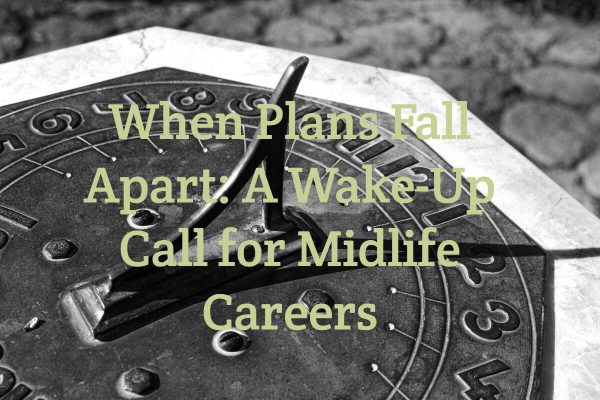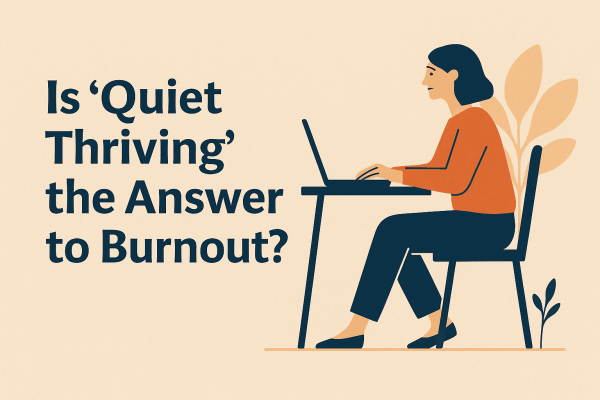How we respond now will shape more than just our careers
We are standing at a hinge moment in history, one that few people fully understand, and even fewer are preparing for.
As a psychologist who has spent decades studying work, identity, and transitions across the lifespan, I want to shout out about what is happening:
Artificial Intelligence is about to reshape the job market, and daily life, faster than most of us can imagine.
Many white-collar jobs, particularly at entry and mid-level, are at risk of disappearing. The tools already exist. And they’re improving at exponential speed.
This isn’t science fiction. It’s already happening.
We need to stop sugar-coating what’s coming
The CEO of Anthropic, one of the world’s leading AI companies, recently warned that up to half of all entry-level white-collar jobs could be gone in the next 1–5 years. These aren’t just routine admin roles: junior legal assistants, marketing coordinators, paralegals, researchers, and junior coders are all under threat.
These are the stepping stones many young people rely on to gain experience and build a career. And yet, too many people, young and old alike, remain unaware.
We haven’t been told clearly. Or we’ve chosen not to look too closely.
So here’s my invitation: especially to those of us in later life:
Let’s not just prepare ourselves. Let’s help prepare others.
How you can support your children, clients, or younger friends
🗣 Don’t dismiss their anxiety.
If they feel worried or stuck, listen. The old rules of career progression may no longer apply. They need guidance, not judgement.
🧠 Encourage them to experiment with AI now.
Tools like ChatGPT, Claude, and Perplexity are free or low-cost. Invite them to test AI on real tasks—from drafting emails to summarising articles or practising interview answers.
🤝 Support them to build the skills AI can’t replicate.
Empathy, ethical judgement, communication, and creativity—these human capacities will only grow in value.
💬 Ask deeper questions.
What do they love doing that’s hard to automate? What are their values, and how can those guide their choices in a changing world?
And what about us?
You might be thinking, “This sounds like a young person’s problem.” But it isn’t.
Older adults who are still working, or considering a return to work, are equally affected.
AI is not just a tool for the next generation. It’s our tool too.
And the better we understand it, the more agency we reclaim.
Here’s what we can do:
🛠 Get comfortable using AI.
You don’t need to become an expert. But knowing how to give a good prompt—clear, specific, and context-rich—can make a world of difference.
You don’t need to code. You need to think in partnership with the machine.
📚 Use AI to augment, not replace.
Whether you’re writing, researching, coaching, or running a business, AI can handle the routine so you can focus on what matters most: the relational and the reflective.
🌱 Pass on your wisdom.
Pair your lived experience with modern tools. Mentor younger people on the human side of work—ethics, purpose, and communication—as they help you with the tech.
🌿 Stay curious.
Thriving in later life isn’t about holding on to the past. It’s about staying open, adaptive, and grounded in meaning.
A final reflection
I often return to one of the most important questions I ask my clients:
“Who am I becoming now?”
It’s a question worth asking, whether you’re 25 or 75.
AI may change how we work. But it doesn’t change who we are.
We are meaning-making beings. We long to grow, contribute, and belong.
The tools are changing. But the human journey continues.
So let’s learn, adapt, guide, and keep becoming.
📝 And if you’d like a free copy of How to Talk to AI: A Prompting Guide for Real People, you’ll find the link below
UPDATE: READ MORE RELATED TO THIS HERE
https://www.axios.com/2025/05/29/ai-college-grads-work-jobs

🧠 Learn to Talk to AI – Like a Real Human
Get your free PDF copy of How to Talk to AI: A Prompting Guide for Real People — and join a thoughtful community exploring work, ageing, and meaning in the AI era.
Thank you!
You have successfully joined our subscriber list.
;





